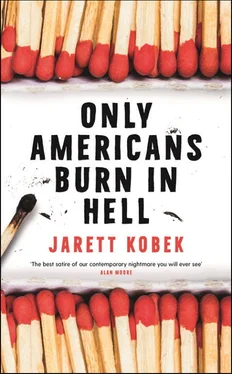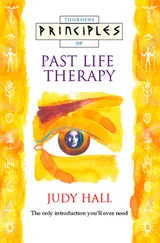I fucking killed.
And then it was time to hear from the judges.
Annabelle Gurwitch and I sat in chairs. Stage right.
The judges were seated stage left.
We watched as our performances were dissected with the jokey malice of a Celebrity Roast. In front of an audience of 280 people.
You’ll forgive me, but I can’t remember a word of what anyone said about Annabelle Gurwitch.
And you’ll forgive me when I say that I can barely remember what Jody Hill and Dana Gould said about me, although I do remember that one of them talked about how innovative it was that I read my piece off an iPad.
It wasn’t an iPad.
It was an Android tablet.
The last judge to comment on my piece was Amber Tamblyn.
She’d been taking notes throughout the event, and she began by reading one of her notes. This is what her note said, give or take: “This guy is wearing white pants. That’s hot.”
She was a person who was infinitely more successful than me, with infinitely more money. She was on America’s highest rated television show. She was published by serious New York presses. And she was in a position of actual, literal judgment on my merit as a writer, and that judgment, if positive, could affect the success of my work and my future.
And she was drunk and making sexualized comments.
In front of an audience of 280 laughing people.
And all I could do was sit there, take it, and pretend to laugh.
While my friends watched.
By any conceivable metric used during #MeToo, this was sexual harassment.
But, seriously, who fucking cares?
Amber Tamblyn wasn’t even the worst.
One time, I was assaulted by a rabid fan outside of the Echo Park Film Center, and another time, I received unsolicited emails from a beloved elder statesman of the literary scene fantasizing about sucking my cock.
He remains a friend.
And I know that as a society we’ve descended into revenge narratives in which a lesser figure remembers some stray incident from the past and uses it to attack someone who’s significantly more famous.
Speak bitterness!
This is our entertainment.
And I realize how uncomfortably close this chapter reads to those narratives.
But that’s not what this is.
Because here is an everlasting truth: if you get Diane di Prima money, you should be allowed to sexually harass the living shit out of everyone in the world.
If I were to give advice to anyone who wants to enter the public sphere, this is what I would say: don’t.
If this theoretical person insisted on entering the public sphere, I would say: recognize the binary presentation inherent in mass media. A public figure can either be good or evil. There are no shades of gray.
So recognize this binary and do yourself a favor: do not cloak yourself in virtue.
Cloak yourself in vice.
Being cloaked in virtue creates an impossible situation: the presentation of self as infallible.
And you will fail.
And when you do, the mass media will be waiting, and the public will feast on your corpse. Nothing tastes better than false virtue.
But cloaking yourself in vice?
There’s nowhere to go but up.
The early days will be difficult, but if you can last four years, you will be an unshakable fixture.
Who knows?
Do this long enough and you might become President of the United States of America!
If the Queen of England trips over a dog, it’s a national scandal.
When Liam Gallagher kicks an old man down the stairs, no one even blinks.
That’s Liam being Liam.
But when our kid hugs a jaundiced paraplegic?
All of that said, it remains a very peculiar experience to be sexually harassed by someone who pens opinion pieces for the New York Times on the social scourge of sexual harassment.
If there’s one aspect of every opinion piece on the social scourge of sexual harassment, it’s that they all contain an implicit core: that there are ways to make the world a better place.
Which, of course, there are.
But when the tools used to make a better world are owned by the Patriarchy, the best outcome you’re going to end up with is a discussion about the social mores in the workplaces of the haute bourgeoisie.
And, remember, that’s the best case.
Here’s one much worse: that, in the end, everyone’s life is still dominated by the whims of the very rich and the social mores of the slightly rich. And that this new reality is exploited by the people who understand that appearances are more important than reality.
All of which is to say that by fixating on sex, the discussion around sexual harassment misses the key element.
Which is the harassment.
The people who end up in positions of power end up in those positions because they are very, very good at humiliation.
That’s their skill.
That’s how they end up as CEOs.
Everyone who has ever had a job has been humiliated by their boss.
This is the nature of the thing.
And, yes, it sucks that the men who end up in power are so fucking crude that the only way they can imagine humiliating women is with sex.
But every single boss who’s humiliating his women underlings is also humiliating his male underlings.
This is who we, as a society, put into power.
Remind me: how many obsequious movies and books and articles have been written about Steve Jobs?
In the end, having a job, even a job like writing, is about interfacing with money, and the biggest lie of our society is that the individual currencies of money are units that measure value.
Money doesn’t measure value.
Money is the measure of humiliation.
What would you do for a dollar?
What would you do for ten dollars?
What would you do for a million dollars?
What would you do for a billion dollars?
So of course Amber Tamblyn would sexually harass me at Literary Death Match.
Why wouldn’t she?
She’d been put into a position of power at an event predicated on the perpetual humiliation of writers.
Chapter Fourteen
When Y Meets X
After the Fontenoy was a bust, Celia and Rose Byrne spent weeks and weeks exploring magical strands of smartphone navigation, which gave the women a decent internal map of Los Angeles and its surrounding environs.
One ropey strand of salvia took them to the Self-Realization Fellowship Lake Shrine, where they wandered around a lake decorated with religious kitsch.
Another strand took them to the site of Jack Parson’s hermitage in Pasadena, where L. Ron Hubbard learned about ceremonial magick and imbued himself with the ideological basis of what would become Scientology.
Another strand, and by far the longest, took them out of Los Angeles and all the way to 274 Coast Boulevard in La Jolla, where, during World War Two, Anna Kavan had spent several months hard drinking and going ga-ga for an architect while looking at ridiculous California coastal splendor.
Another took them to 6026 Barton Ave, the address at which Samson de Brier held his cultural salons, where the former Francis Fuller had made the deal for Handspun Roses several decades before Celia wiped out any memory of the film or its director.
Another took them to a lecture at the Philosophical Research Society on Los Feliz Boulevard, which had the virtue of being very close to the house on the hill.
Another took them to the Bellagio gate of Bel Air, where buses from the San Fernando Valley dropped off the permanent servant class of Latino Americans to perform domestic duties in the homes of the Celebrity branch of American governance.
Another took them to a one-room structure behind 7508 Sunset Boulevard, where the members of Guns N’ Roses had lived in depravity.
Читать дальше









![Brian Thompson - A Monkey Among Crocodiles - The Life, Loves and Lawsuits of Mrs Georgina Weldon – a disastrous Victorian [Text only]](/books/704922/brian-thompson-a-monkey-among-crocodiles-the-life-thumb.webp)


